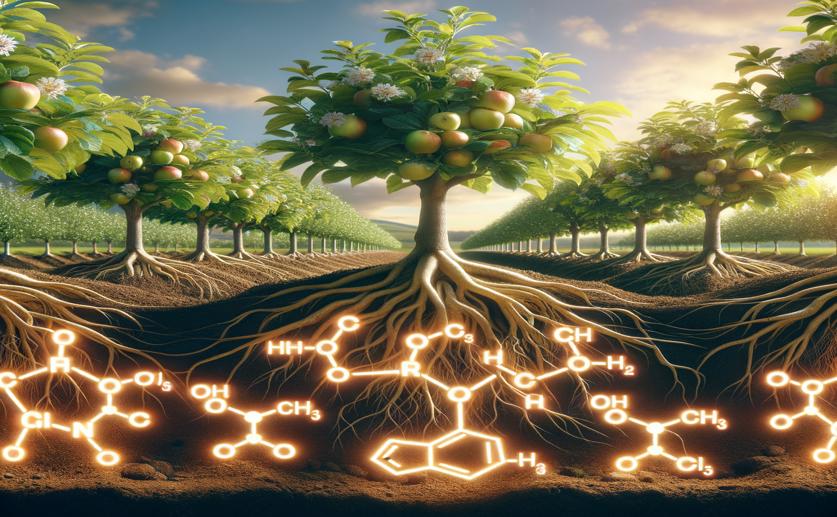
How Strigolactones Help Apple Trees Resist Aluminum Stress
Jim Crocker
4th April, 2024

Image Source: Natural Science News, 2024
Key Findings
- In apple orchards, a study found a way to protect trees from soil aluminum toxicity
- A synthetic hormone helped apple trees store aluminum safely, preventing root damage
- Researchers identified genes that when altered, increase aluminum tolerance in apples
BiochemPlant ScienceAgriculture
References
Main Study
1) Strigolactones alleviate AlCl3 stress by vacuolar compartmentalization and cell wall blocking in apple.
Published 2nd April, 2024
https://doi.org/10.1111/tpj.16753
Related Studies
2) Strigolactones, a novel carotenoid-derived plant hormone.
3) Extensive signal integration by the phytohormone protein network.
4) The pea TCP transcription factor PsBRC1 acts downstream of Strigolactones to control shoot branching.



 25th March, 2024 | Jenn Hoskins
25th March, 2024 | Jenn Hoskins